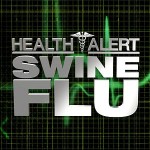Last Updated on May 20, 2010 by Bryan Dastan
It is an old saying that –Prevention is better than cure. Let us look at a few simple steps you could take to prevent swine flu. They are very easy to follow while maintaining your daily life, and would go a long way in keeping you away from the pandemic flu.
Centers for Disease Control and Prevention (CDC) advises people to follow these steps: 
• Make sure that you wash your hands regularly, especially after coughing or sneezing. Rinse thoroughly and scrub them clean. Also pay special attention and clean your nails.
• Always keep an alcohol-based hand gel handy. In case soap an water are not available use it. Rub your hands together until the alcohol dries completely.
• The flu virus survives for up to 48 hours on hard, nonporous surfaces such as stainless steel and for up to 12 hours on cloth and tissues. Do not touch door knobs, wardrobes, kitchen cabinets or other hard surfaces after coughing or sneezing.
• Clean your house, especially hard surfaces like wood, metal, stones like granite or marble on a regular basis with an alcohol based disinfectant.
• The virus survives only for a few minutes on your hands — but that’s plenty of time for you to transfer it to your mouth, nose, or eyes.
• Dispose off the tissues used promptly and carefully.
• Avoid close contact with people who have flu-like symptoms. Stay at least 6 feet away. Avoid crowded places, as it is difficult to avoid close contact. If possible do not touch metallic surfaces in crowded areas.
• Do not keep touching your mouth, nose, or eyes. If you cannot avoid the habit, at least, wash them often.
• If you have flu like symptoms, stay at home. Keep a buffer period of 24 hours even after you are symptom-free. People who have flu-like symptoms should carry disposable tissues to cover their coughs and sneezes. When going out in public, or when sharing common spaces around the home with family members, you should put on a face mask.
• See a doctor immediately, if you have flu like symptoms.
• People at increased risk of severe flu illness — pregnant women, for example — should wear a face mask when providing assistance to a person with flu-like illness.
• Wear an N95 respirator if taking care of a sick person with a nebulizer, inhaler, or other respiratory treatment. Respirators filter out virus particles when used correctly.



